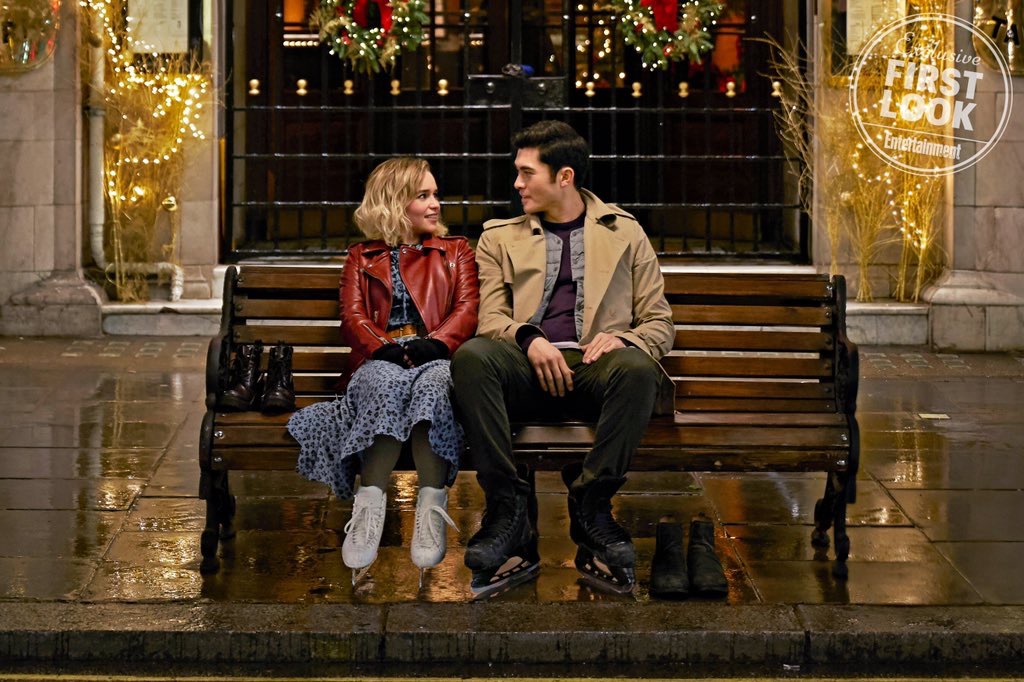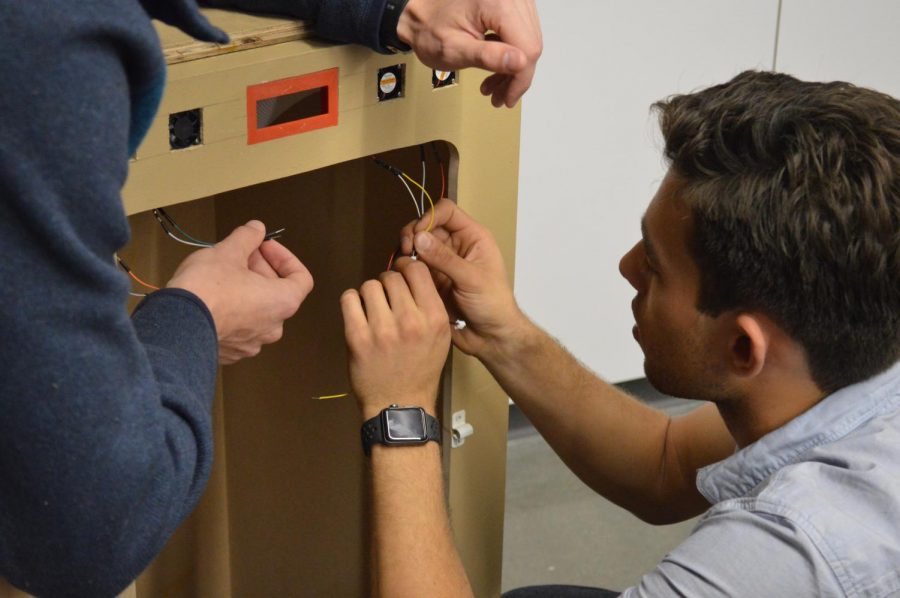(This story was originally published in print on Nov. 14, 2019).
‘Tis the season to bundle up with a warm mug of hot cocoa and endless romantic comedies. As December quickly approaches, people are finding any reason to indulge in Hallmark films and Christmas playlists. Those who have already begun Christmas festivities should consider taking a break from Hallmark flicks to watch the latest Paul Feig film “Last Christmas,” where George Michael hits, Christmas trinkets and diversity collide.
LOOK UP
In the film, borderline homeless Kate, portrayed by Emilia Clarke, couch surfs to avoid her dysfunctional family, who migrated from Yugoslavia in the late ‘90s. When she’s not an elf selling holiday decor at a local year-round Christmas shop, she half-heartedly auditions for singing gigs around the city. Hopeless, distraught and unmotivated, she can’t seem to catch a break.
One day, while cleaning up on the job, she peeks through the window and spots a tall man in a tan peacoat staring up at the sky. Intrigued, Kate walks out of the store to meet him, and he introduces himself as Tom, portrayed by Henry Golding. Although she wrote him off at first, the two eventually strike up an interesting relationship, as Kate finally agrees to go on a walk with him.
Throughout the film, Tom encourages Kate to “look up” and live in the present. He even admitted to storing his phone away in his kitchen cupboard so he could take in life for all that it is. Despite her initial skepticism, Tom’s wit and charm win Kate over.
DIRECTOR DOES DIVERSITY
While the storyline follows a narrative similar to most Christmas movies, the film includes an Asian male lead, which is rare among Hollywood films. Known for “Bridesmaids” and most recently “A Simple Favor,” which also stars Golding, Feig is seemly prioritizing diversity, and it shows. With Michelle Yeoh as “Santa,” the owner of a year-round Christmas shop, the film presents somewhat of a “Crazy Rich Asians” reunion, but who’s complaining?
Since the release of “Crazy Rich Asians” last summer, Asian representation has increased in films. In last year’s “To All the Boys I’ve Loved Before,” viewers saw an Asian female lead in the coming-of-age flick. “The Farewell,” starring Awkwafina of “Crazy Rich Asians,” also featured an all-Asian cast, gaining popularity since its release this past July, as it depicts the complex story of an Asian American artist who reunites with her family in China.
The release of Netflix original “Always Be My Maybe,” starring Ali Wong and Randall Park, showed that Asian women are fierce entrepreneurs and Asian men are hilarious heartthrobs. Maybe Hollywood is onto something—Asians are more than tiger moms, kung-fu fighters and nerdy math lovers.
THIRST FOR MORE
Although there has been a surge of Asian representation within the film industry, Golding’s performances leave a thirst for more Asian males as romantic leads. In this film as well as “Crazy Rich Asians,” “Always Be My Maybe” and “The Big Sick,” viewers abandon the stereotype of Asian males as dorky sidekicks and foreign exchange students. Perhaps film lovers can finally bid adieu to cringeworthy, racist representations like Long Duk Dong in “Sixteen Candles” and Mr. Yunioshi in “Breakfast At Tiffany’s” once and for all.
In “Last Christmas,” Kate swoons over Tom’s care for the impoverished and positive outlook on life, not to mention his dashing good looks. He is not a foreigner with a thick accent but an ordinary man worth crushing on. Despite what Hollywood has made them out to be over the years, Golding’s performance, once again, shows that Asian men are more than capable of portraying love interests.
















